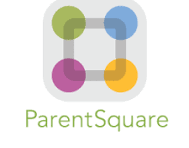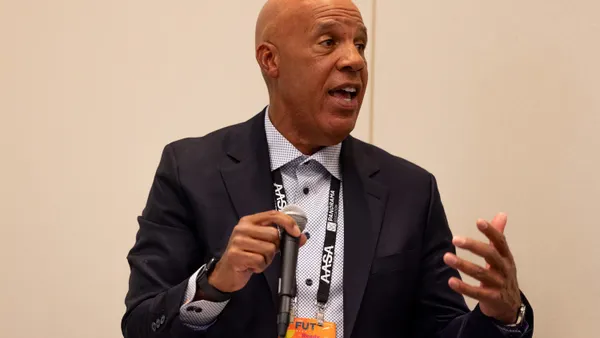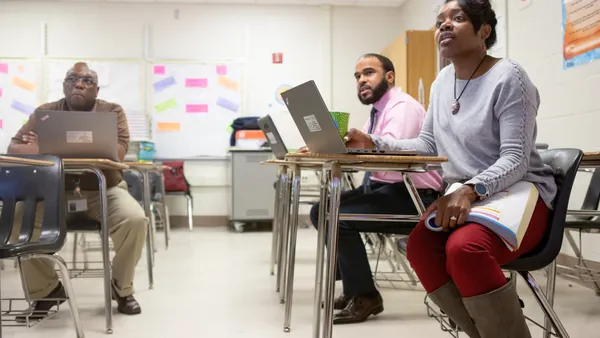Most clicked story of the week:
In a lawsuit filed July 21, 20 states and the District of Columbia sued the Trump administration over its decision earlier this month to restrict publicly funded programs — including those related to education — based on immigration status. The lawsuit argues that the restrictions to programs like Head Start will hurt low-income families and result in the “collapse of some of the nation’s most vital public programs.”
Led by New York, the lawsuit alleges the U.S. Department of Education and three other federal agencies didn’t follow the required rulemaking process when it issued the new immigration verification requirements.
Trump education funding freeze battles roll on:
- The Trump administration’s withholding of funds for Head Start early childhood education programs violated the Impoundment Control Act of 1974, according to a decision issued Wednesday by the U.S. Government Accountability Office. GAO cited several actions between January and April that strained the Head Start system, including delays in expected federal funding and reduced funding levels intended by Congress as compared to the year before.
- A coalition of 14 school districts, parents, teachers unions and nonprofit organizations is suing the Education Department and the White House’s Office of Management and Budget over the withholding of $6.2 billion in funds for low-income students, English learners, after-school programs, immigrant students and teacher training. The lawsuit argues that the decision to withhold the funds violates the Administrative Procedure Act, the Impoundment Control Act, and the constitutional separation of powers.
- The Trump administration on July 18 confirmed it would release $1.3 billion in federal funding for after-school and summer programs that districts and states expected to begin accessing July 1. The funding for 21st Century Community Learning Centers was under review by OMB to ensure the funding aligned with Trump administration priorities. The weekslong delay caused cancellations and other disruptions to summer and school-year student services, according to educators, families, education organizations and lawmakers.
Enrollment woes compound district financial concerns:
- St. Louis Public Schools proposed closing 37 of its 68 schools by the 2026-27 school year in a plan presented to its school board on July 22. Student enrollment is expected to continue declining from 18,000 to nearly 15,400 between the 2024-25 and 2025-26 school years, and school buildings districtwide are at roughly half capacity on average. The school closures would save the district $182.4 million by 2030-31, according to St. Louis Public Schools.
- K-12 enrollment in Massachusetts has experienced a prolonged shift from public schools to non-public alternatives since the onset of the COVID-19 pandemic, according to a study published July 22 by Education Next. Public school enrollment in the state fell 4.2% between 2019 and 2024, while homeschooling skyrocketed 51%, charter enrollment remained flat, and private schooling decreased by 2.6%, the study found. The study’s authors wrote that trends in Massachusetts could reflect broader patterns throughout the U.S., as the state’s 2024 data closely mirrors national enrollment trends from 2023.
- A recent report from Moody’s Ratings suggests school districts with strong budget management and the ability to raise revenue, in addition to state funding access, will be better prepared to weather the financial storm exacerbated by recent federal education policy changes. A significant increase in state aid could stave off effects from shrinking federal support under the Trump administration, but any states’ plans to bolster school funding may be scrapped to adapt to other federal policy changes such as reduced Medicaid or disaster recovery funding.






 Dive Awards
Dive Awards








